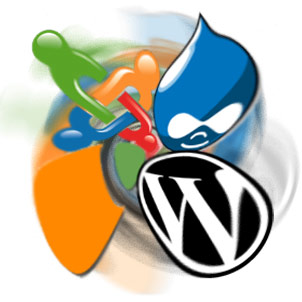Let’s start with some common knowledge. If you plan on saving money, do not go shopping without a list. If you don’t, you will end up purchasing things you may not need.
The very same principle is applicable while settling on a content management system or CMS. If you have not made a prior list of precisely what you need, you might get carried away by flashy features that you will never put to use. Before you can ‘hey,’ you will end up buying an enterprise-level CMS system that costs tens of thousands of dollars when a much simpler system could do the job with equal efficiency.
So how do you come up with a list of imperative requirements? There might be variations due to your unique circumstances. However, I have used the knowledge that I have acquired over my career to present to you the 9 must-have requirements for efficient CMS.
Core Functionality
It is quite common for people to assume that all content management systems’ sports functionalities create, edit delete, and organize pages. However, not every CMS system offers these functionalities, and for the ones that do, there is no assurance that these functionalities will be presented effectively and intuitively.
Decide upon the functionality you need before purchasing or creating a CMS system. Include considerations like even if you do not require a feature that helps you structure and organize pages now, you might still need this feature in the future. Systems that do not allow you to complete these core tasks should be given a wide berth.
Make sure to test the CMS system before you purchase it, or in case you plan on developing one of your own either in-house or through a software development outsourcing partner, let the development team know that usability is of prime importance to you.
The Editor
The editor used by the CMS is another core feature that demands attention. The editor is the tool that allows content addition and amendments. Editors also allow content providers to format text. The WYSIWYG editor is the most common.
However, recently there has been a distinct collective move away from such editors to their next-gen counterparts that allow heading markups, lists, links, etc., without specification or the ability to customize their appearance.
Ensure that your editor does not offer immoderate control over appearance. Search for CMS that allows for editor replacement in case a more appropriate solution comes up. Also, Ensure that the editor you choose can manage external assets.
Managing Assets
Some CMSs do not adequately handle image and file management.
Such systems can cause a lot of user frustration due to lowered usability and accessibility. Image management is an oft-recurring pain point. Make sure that your CMS makes content providers add<alt> attributes to all uploaded images.
At the very least, your CMS should provide basic image editing functionalities. Another point of consideration is how your CMS handles uploads and attachments. Are these attachments displayed optimally to end users? Is there the possibility to attach descriptions to the files, and does the search function index them?
Search
The “search” feature is a prerequisite for all websites. Around 50% of all users start looking for content with “search.” Unfortunately, the search functionality in most CMSs isn’t optimal. Here is a list of things to look for to make an accurate assessment of the search functionality’s potency.
Freshness
It is essential to know how fresh your search feature is and the frequency at which it indexes your website.
Thoroughness
The search engine should index each page’s entire content and attached files such as PDF, Word, and Excel documents.
Speed
A common issue with large websites, some search engines are exceptionally slow, making them of little or no worth to the user.
Scope
The scope of the search function requires scrutiny. Does it allow you to limit the search scope to a specific section and refine search results?
Ranking
Which parameters does your search engine use to rank results? Can this be customized?
- Customization
- Do you have control over how results are displayed, and can you customize the layout?
Customization
Techniques to separate content and design have been around for quite some time now, and the CMS technology should no longer dictate your content’s presentation.
One essential CMS development requirement is that it should provide flexibility in how content is retrieved and displayed. A use case could be; the ability to retrieve news stories in chronological order or whether events in a calendar can be displayed. Flexibility/ customization is a key requirement for a CMS to be considered efficient.
User Interaction
Suppose you have any intention of gathering user feedback, which is extremely important. In that case, you must ensure that your CMS either has that functionality or allows the integration of a third-party plugin that provides said functionality. If you wish to build a community on your website, you will require features like forums, chats, and ratings.
Your CMS needs to have tools that facilitate communication with customers. Can you create mailing lists? Can you send out newsletters? Do you have the option of putting up news feeds and RSS?
Consider user management as well. Can you reset passwords or export user info?
Roles and Permissions
With an increase in content providers on your website, you will require a CMS that supports permissions, e.g., Who can edit and post what.
You will also require segregation of roles in which certain people can review the content being posted. Your CMS should support multiple roles, e.g., “Editor,” “Approver,” etc.
Multiple Website Support
Your CMS should allow you to run more than one site from a single installation. Initially, you might not need to manage more than one website, but in the future, that might change as you might launch a website to cater to a more niche audience. You might also need a different website built, especially for the mobile platform.
Multilingual Support
Your CMS should be able to evolve along with your business and requirements. Multilingual support may not seem very important initially. Still, as your reach increases, you would want to target users in a specific geo-location in the language they are most comfortable with. Society today is multilingual and multi-cultural. The ability to manage these differences gives you a massive competitive edge.
Conclusion
In summation, I would like to state that even though features are an essential part of selecting your CMS, issues such as support, security, licensing, and accessibility are also worthy of consideration.
Ensure that your requirement list does not become a wish list as initially, you should keep your requirements to a minimum while keeping a sharp eye on the future.
I am Pratik Mistry, a driven technologist and spirited technocrat. I hold the helm of Senior business head at one of the best software development outsourcing companies where I steer my passion for helping businesses grow revenues by delivering top notch software development services and in building value-based partnerships.






















































































































































































